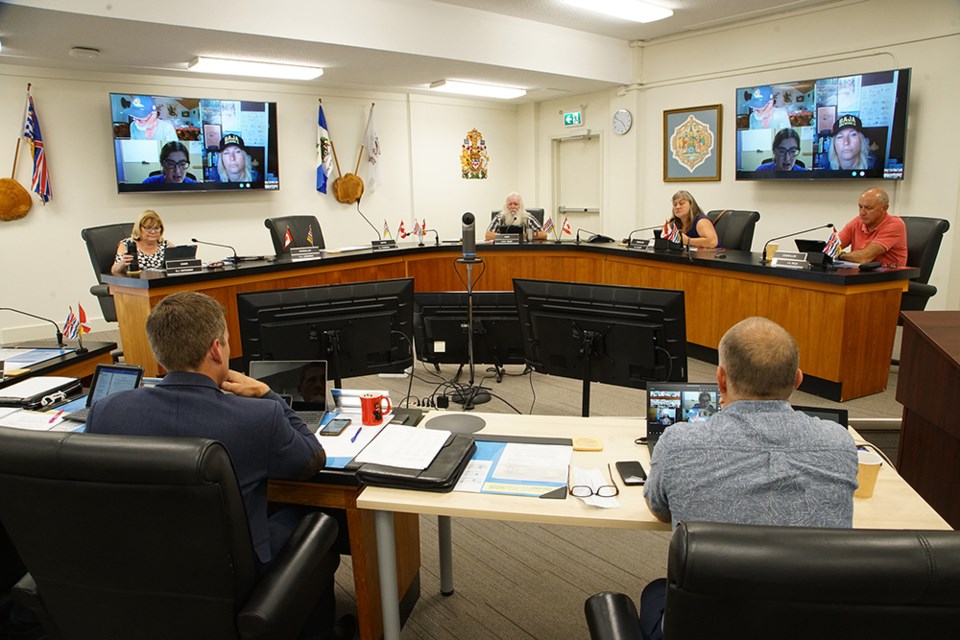City of Powell River will consider repealing its current purchasing policy and adopting a social purchasing policy in its place.
At the July 22 finance committee meeting, chief financial officer Adam Langenmaier said that in 2016, council gave direction for staff to look into implementing a social procurement policy and now, a policy has been developed.
“When you look at the policy there is not a huge, significant change to the policy we have,” said Langenmaier. “What we strengthened is what the city can do and what actions we can take to encourage social procurement.
“Social procurement, as I understand it, is quite a vast thing. You can have big actions, little actions, and this policy captures the ability to look at all of these actions.”
Langenmaier said city officials have been working with British Columbia Social Procurement Initiative (BCSPI) to continue staff training, and to acquire tools and resources regarding how the city can report back on the impact the adoption of this policy has, and the measurements.
According to a report from Langenmaier, communities today are facing complex social, economic and environmental challenges. The report stated that local governments and other large purchasers spend billions of dollars each year on goods, services and infrastructure projects. When procurement focuses on best value for money beyond just a financial transaction, it becomes a tool for building healthy communities, the report stated.
Social procurement practices create pathways to stronger local economies and unlock additional community benefits that can help meet social goals of local governments, according to the report.
“The adoption of a social procurement-based purchasing policy is a step in making the impact of the city’s purchases more beneficial to all,” the report stated. “Social procurement is not always an easy subject to understand or implement as the impacts of a change in purchasing may not be seen for several years.
“To date, the city does apply a social lens to some purchases, however, staff have not had prescriptive direction in the form of a policy to expand the practices of social procurement. The adoption of a social procurement-based purchasing policy will give staff the necessary tools and direction to improve on social procurement, along with improved reporting of social procurement outcomes.”
Policy pleases councillor
Councillor Rob Southcott said it is an understatement to say he is extremely pleased that the policy came to the finance committee.
“The product we have here was worth the wait,” said Southcott. “I’m delighted with Mr. Langenmaier’s report, and also, the policy he has produced. I agree that it is going to take a while to become familiar with how this works.”
Southcott said BCSPI is an amazing organization that has been working with this for a long time, and has discovered some great and innovative ways for it to work. He said BCSPI can conduct training, has a library of templates and can provide consulting and advice.
“They are definitely a resource we can use,” said Southcott. “I’m delighted with how far it has developed.”
Councillor Cindy Elliott said she understands the policy is intended to add social objective lenses to when the city chooses to buy items or have contracts, so the city is not only getting what it wants, but also using companies that are responsible in how they meet the city’s purchasing requirements.
Langenmaier said value is always very important in making a purchase. He said if the city has an opportunity to procure locally, which keeps money in the local economy, there might be a bit of a spread on price, versus buying that item from Amazon. He said if the city was just dollar-focused, it would go directly to Amazon. He said the social procurement policy allows for staff members to take impacts of purchases into consideration. That’s on the low value purchases.
Langenmaier said once purchases get into the hundreds of thousands of dollars, in the documents for bidding, the city can write in a section that the city wants to ensure social procurement is part of the request for proposal response.
“When we are looking at the cost of a big project, and we have one company that has apprentices coming through, and we have another company that does not, it gives us some latitude to give a bit more weight in the overall decision process of awarding that contract,” said Langenmaier. “Price isn’t always the only factor that we look at. It’s what our needs are and how they are being met.”
Finance committee chair George Doubt said when he is looking at the new policy, the social purchasing policy, as opposed to the previous purchasing policy, it states the items the city will consider, taking into account things such as supporting local enterprises, preferentially based on geographical proximity to the city. He said it may end up costing the city slightly more but doing that benefits the community more.
“I like the policy,” said Doubt. “I’m glad it’s here. I appreciate it took a long time. It’s actually a real opportunity to use taxpayers’ money in a way that benefits the taxpayers in the largest way, and the largest context, including environmental and social benefits.”
The finance committee recommended taking the initiative to city council in August.


.jpg;w=120;h=80;mode=crop)
